Symptomatic Uncomplicated Diverticular Disease
Symptomatic uncomplicated diverticular disease. The inflammation is extracolonic with minimal intraluminal evidence of. A condition known as symptomatic uncomplicated diverticular disease SUDD. Abdominal pain Constipation Irregular stool caliber or consistency Often improves with increased fiber.
Symptomatic uncomplicated diverticular disease SUDD affects about 20 of patients who have diverticulosis. Symptomatic uncomplicated diverticular disease SUDD is a syndrome characterized by recurrent abdominal symptoms in patients with colonic diverticula. Ninety consecutive patients 36 men 54 women mean age 675 y range 39 to 84 y previously affected by symptomatic uncomplicated diverticular disease of the colon remission obtained with rifaximin 800 mgd plus mesalazine 24 gd for 10 d followed by mesalazine 16 gd for 8.
We assessed the effectiveness of mesalazine in improving symptoms namely abdominal pain primary outcome and in preventing diverticulitis occurrence secondary outcome in patients with SUDD. 12 Symptomatic uncomplicated diverticular disease SUDD is a clinical condition mostly characterized by intermittent or persistent episodes of abdominal pain. BACKGROUND AND AIM.
Symptomatic uncomplicated diverticular disease is considered to be a discreet clinical entity distinct from irritable bowel syndrome IBS but population-based data are unavailable. Diverticulosis usually causes no symptoms. Several trials are already under way including a mechanistic randomised controlled trial of mesalazine in symptomatic diverticular disease SAG44 evaluation of the effectiveness of Lactobacillus reuteri in uncomplicated diverticular disease and evaluation of efficacy of mesalazine in prevention of acute diverticulitis SAG37.
Symptomatic uncomplicated diverticular disease SUDD is characterized by abdominal pain bloating and altered bowel habits constipation or diarrhea attributed to diverticula in the absence of macroscopic mucosal alterations. There is some evidence that a high-fiber diet or supplemental fibers may reduce symptoms in SUDD patients and a. Its acute presentation is due to an obstructing faecalith which results in micro-perforation of the diverticulum and secondary infection of the colon.
The severity and frequency of SUDD symptoms may have an impact on daily activities and severely affect quality of life. 5-ASA for management of symptomatic uncomplicated diverticular disease SUDD The primary objective is to evaluate the efficacy and safety of 5. In symptomatic diverticular disease is lacking.
Symptomatic diverticular disease also known as symptomatic diverticulosis is characterized by nonspecific attacks of abdominal pain without evidence of. There-fore correct diagnosis is critical to the management of SUDD 15.
Diverticulosis usually causes no symptoms.
The severity and frequency of SUDD symptoms may have an impact on daily activities and severely affect quality of life. Its acute presentation is due to an obstructing faecalith which results in micro-perforation of the diverticulum and secondary infection of the colon. 1015 will experience symptoms diverticular disease and acute diverticulitis will occur in only 5 of cases. There-fore correct diagnosis is critical to the management of SUDD 15. Efficacy of combined prophylactic therapy rifaximine alpha prebiotic arabinogalactan with lactofferin on GUT function in patients with diagnosed symptomatic uncomplicated diverticular disease. In most cases left lower abdominal pain lasting. However the natural history of SUDD is not yet completely understood. In symptomatic diverticular disease is lacking. The inflammation is extracolonic with minimal intraluminal evidence of.
Patients with diverticulosis who develop persistent abdominal pain bloating and changes in bowel habits not associated with overt inflammation may have symptomatic uncomplicated diverticular disease SUDD. Its acute presentation is due to an obstructing faecalith which results in micro-perforation of the diverticulum and secondary infection of the colon. The inflammation is extracolonic with minimal intraluminal evidence of. However the natural history of SUDD is not yet completely understood. Symptomatic uncomplicated diverticular disease SUDD affects about 20 of patients who have diverticulosis. Diverticulosis usually causes no symptoms. SUDD is a syndrome characterized by recurrent abdominal symptoms ie abdominal pain and bloating as well as changes in bowel habits resembling or overlapping irritable bowel syndrome IBS symptoms attributed to diverticula in the absence of macroscopically evident alterations other than the presence of diverticula.
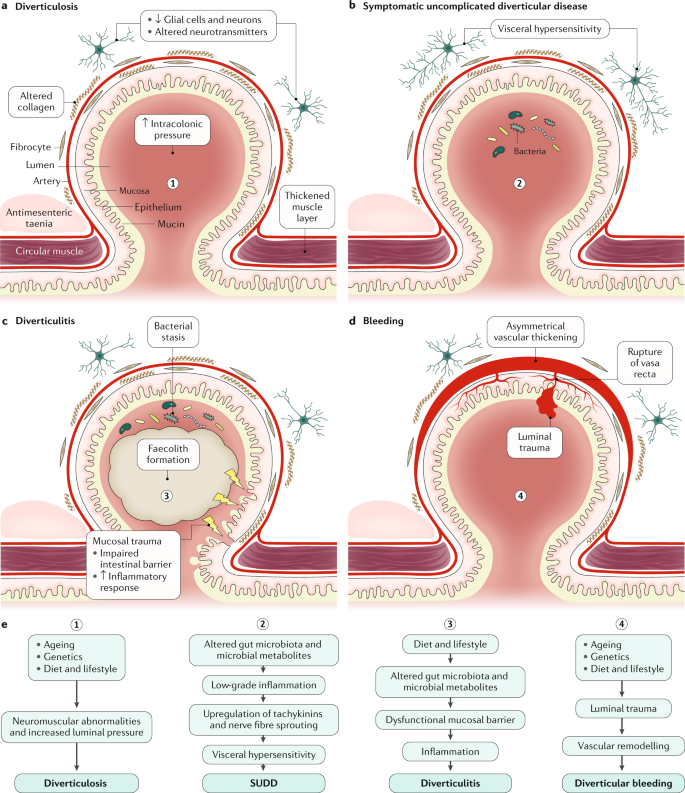




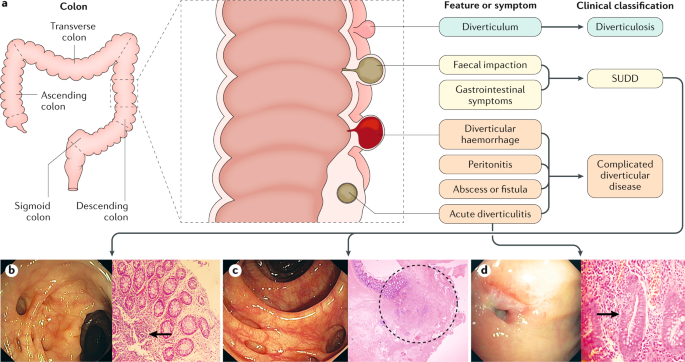
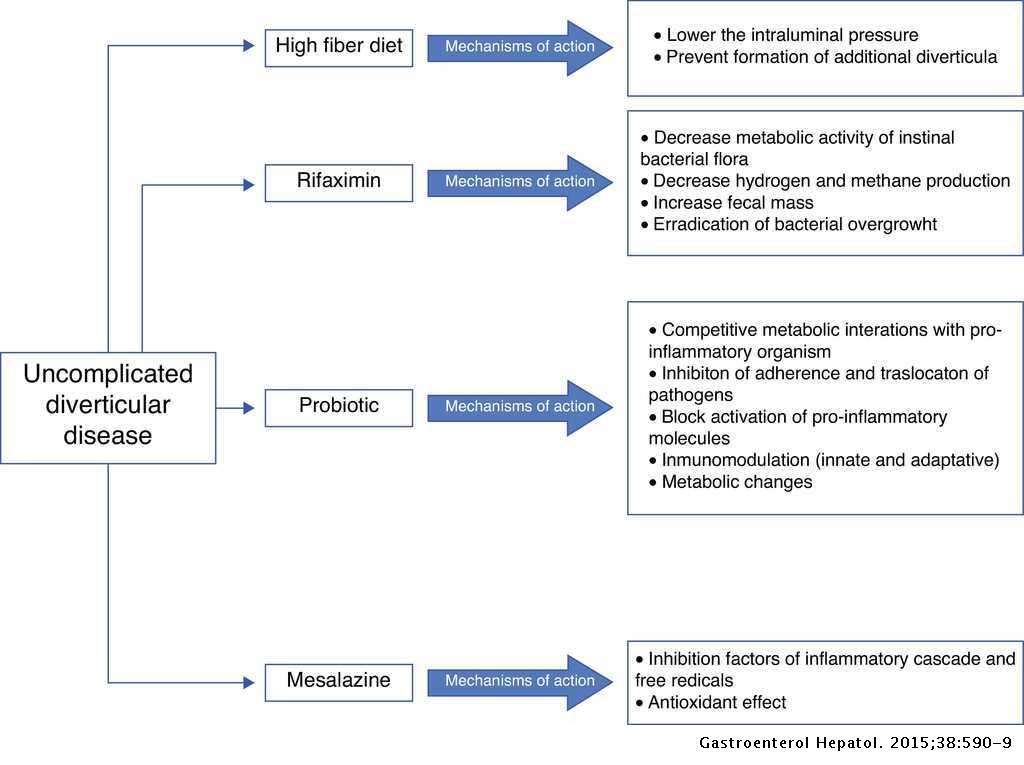
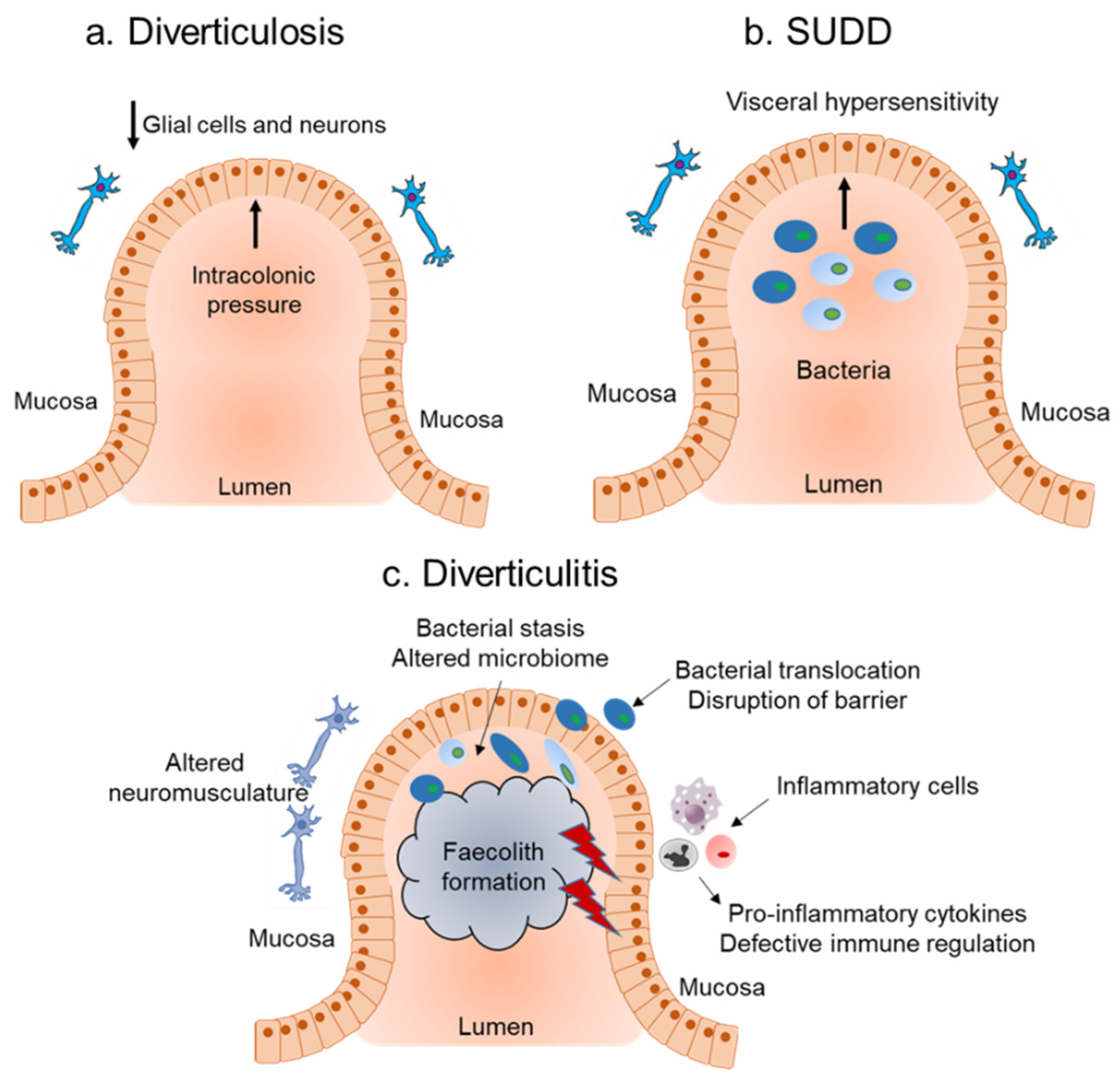

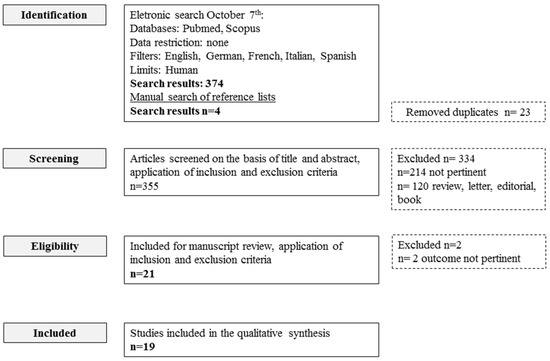


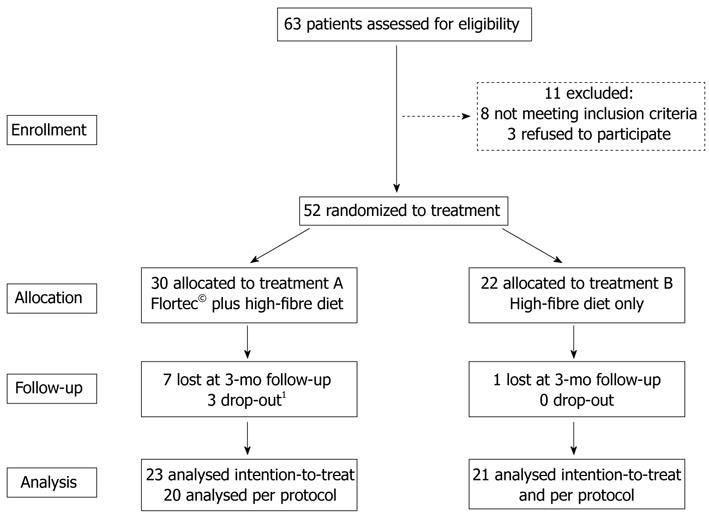


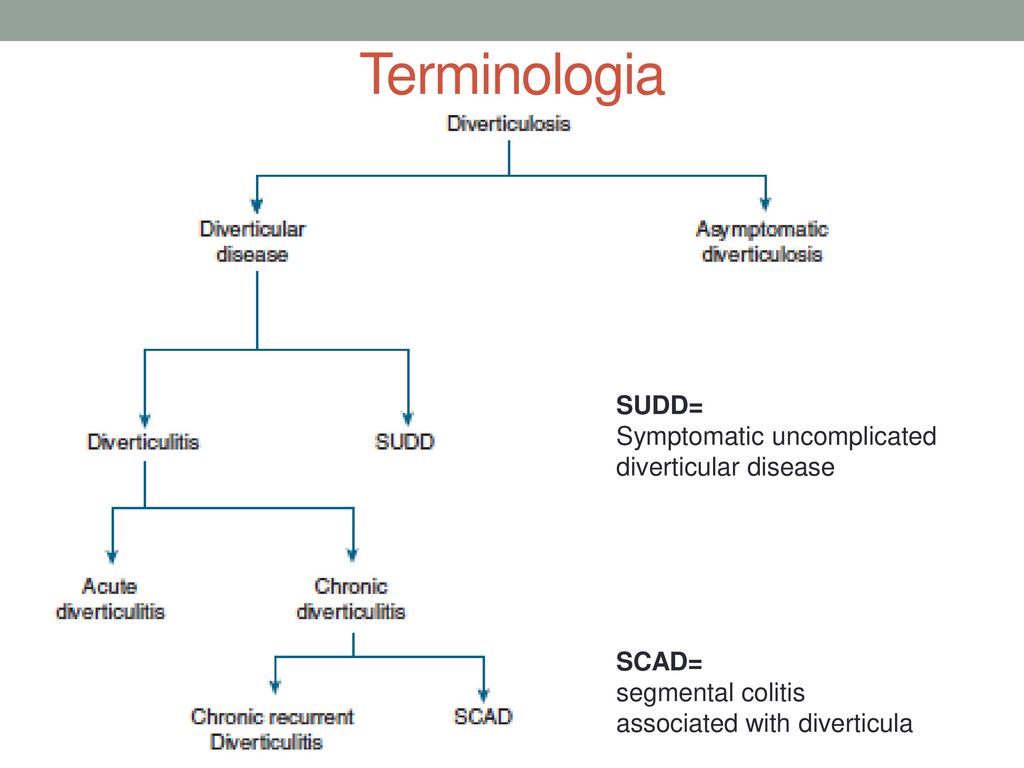
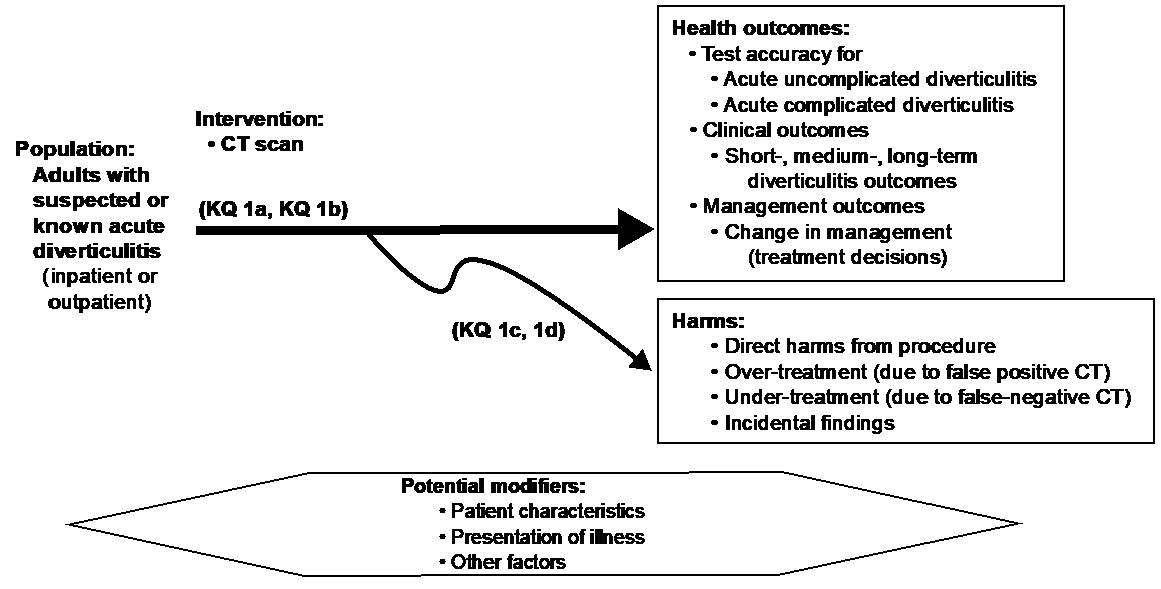
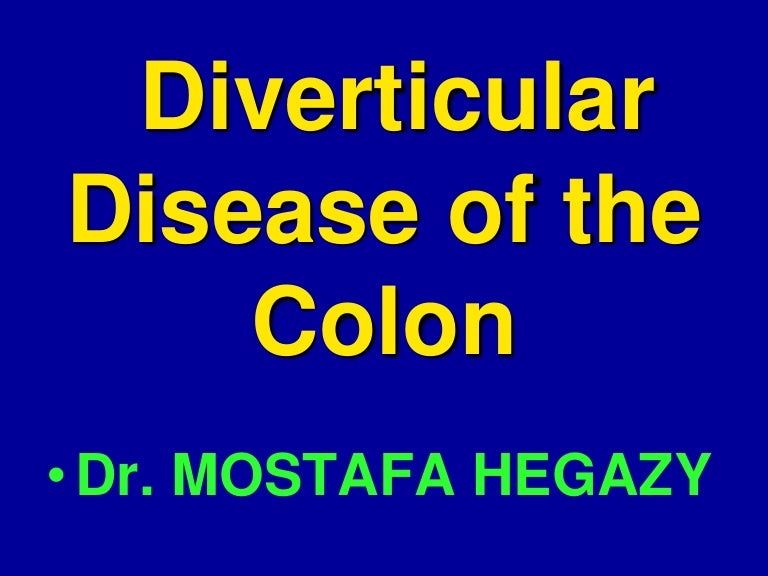

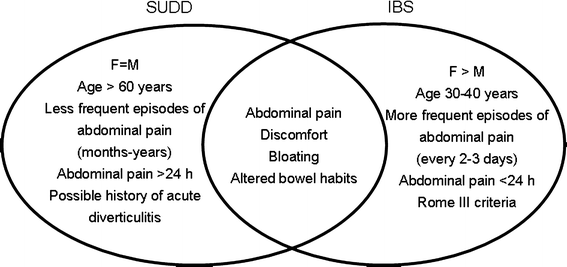






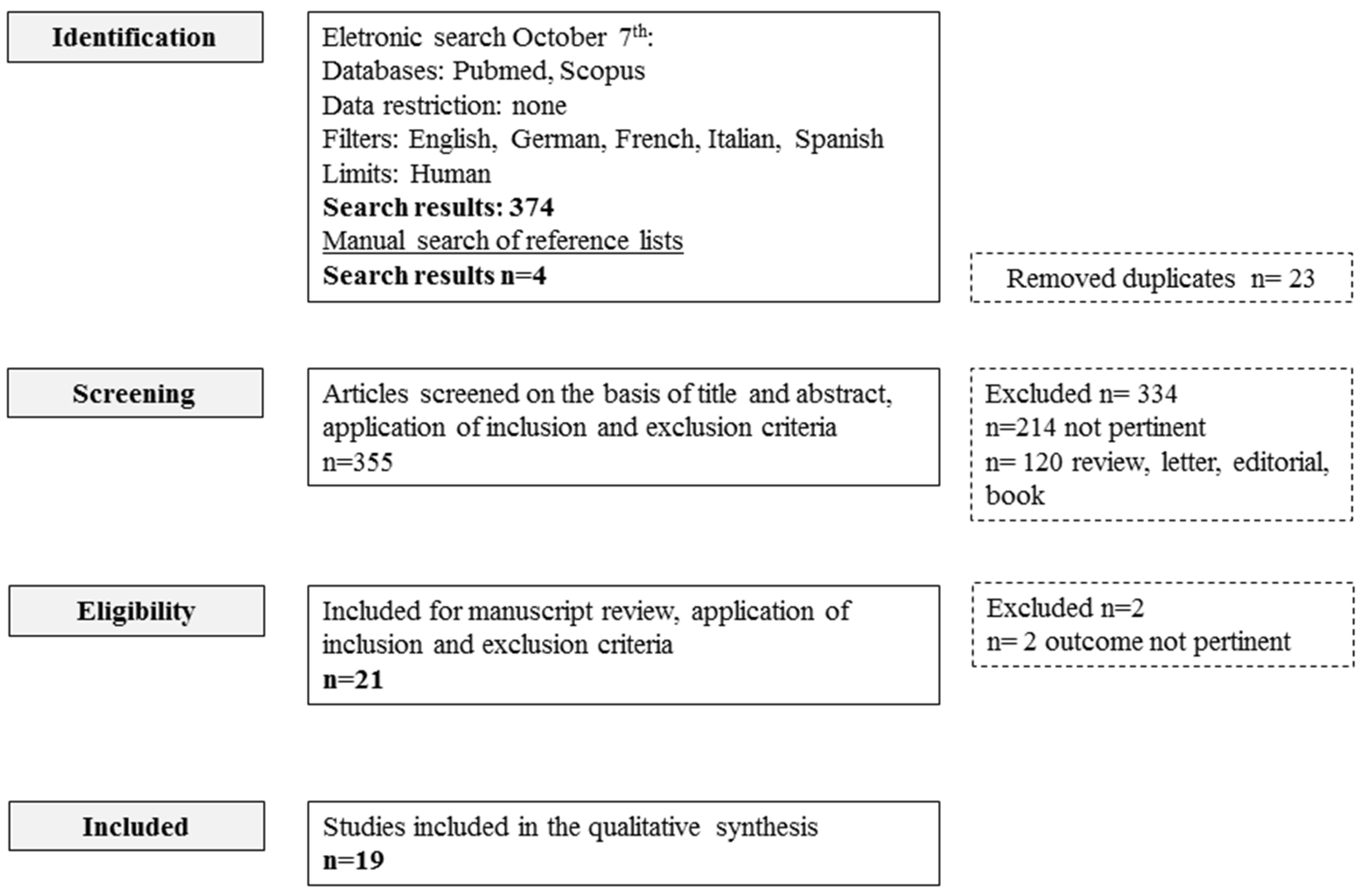
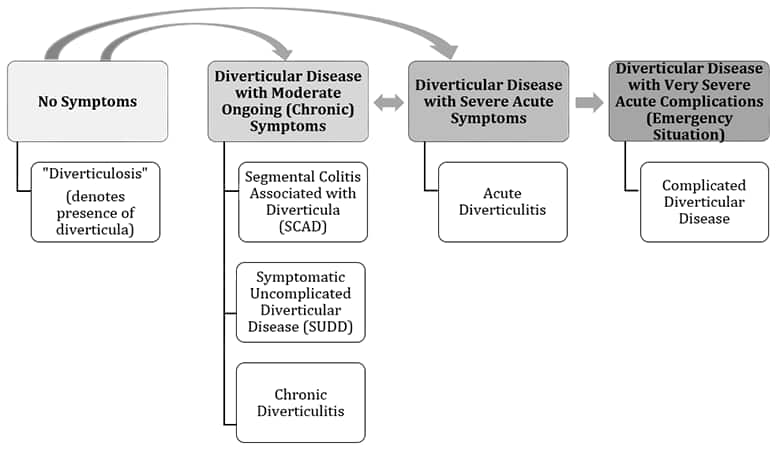
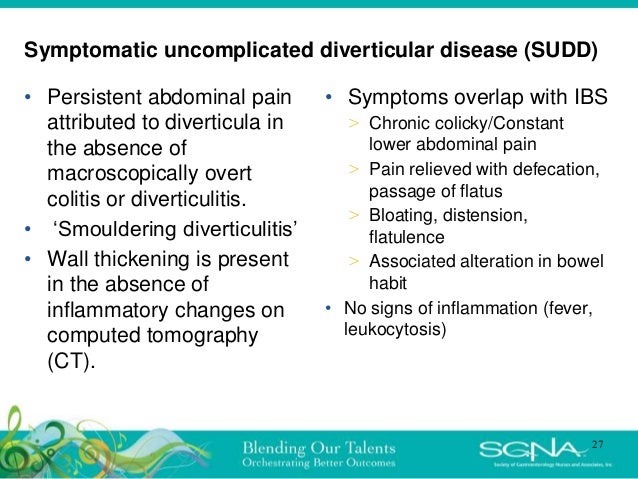


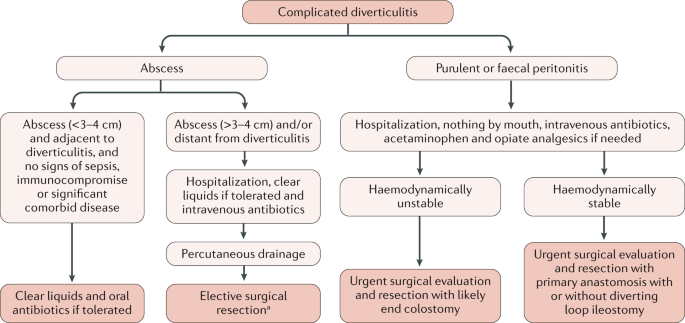



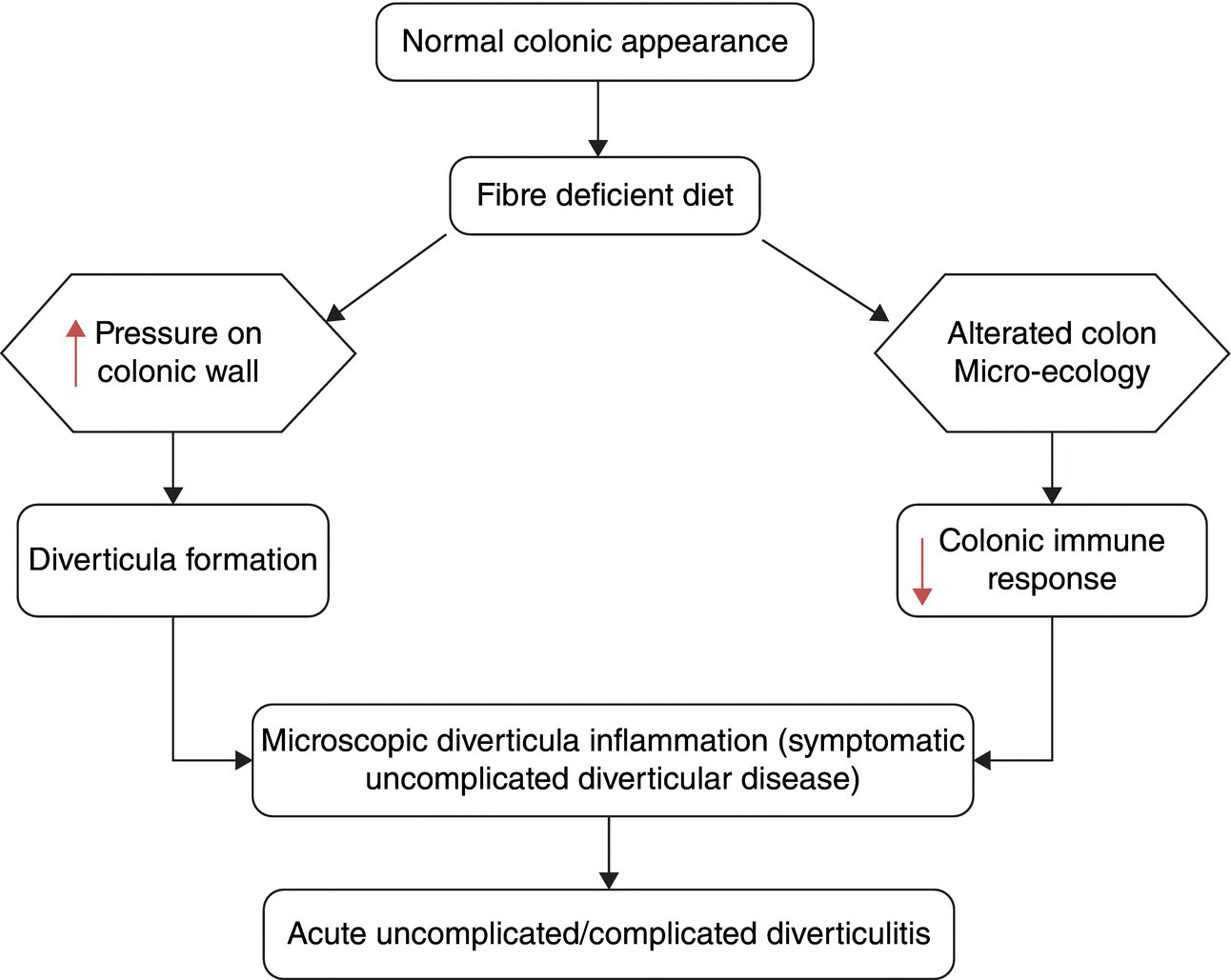


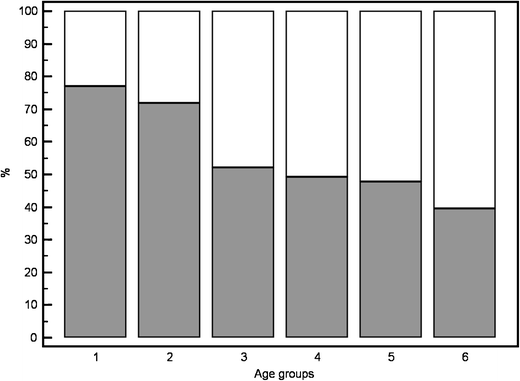

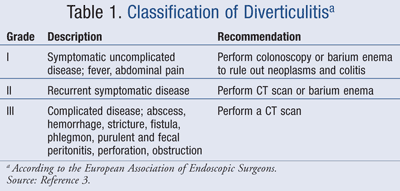
Post a Comment for "Symptomatic Uncomplicated Diverticular Disease"